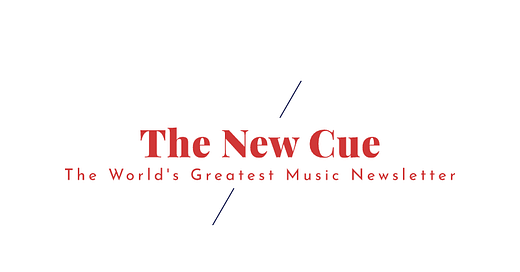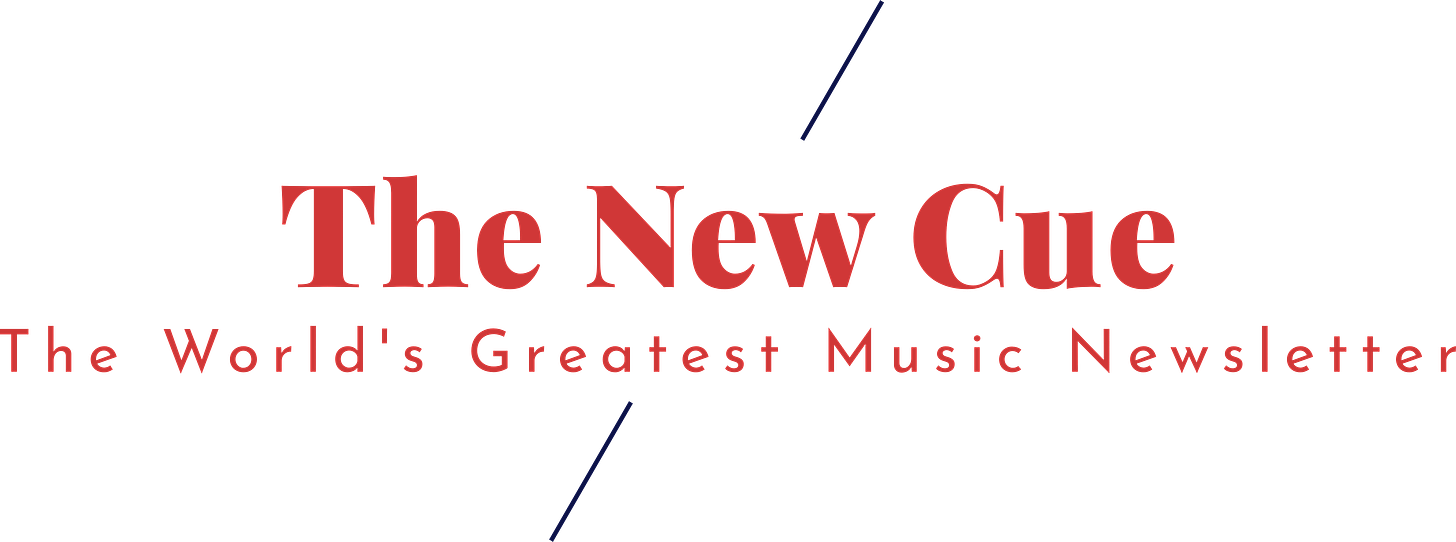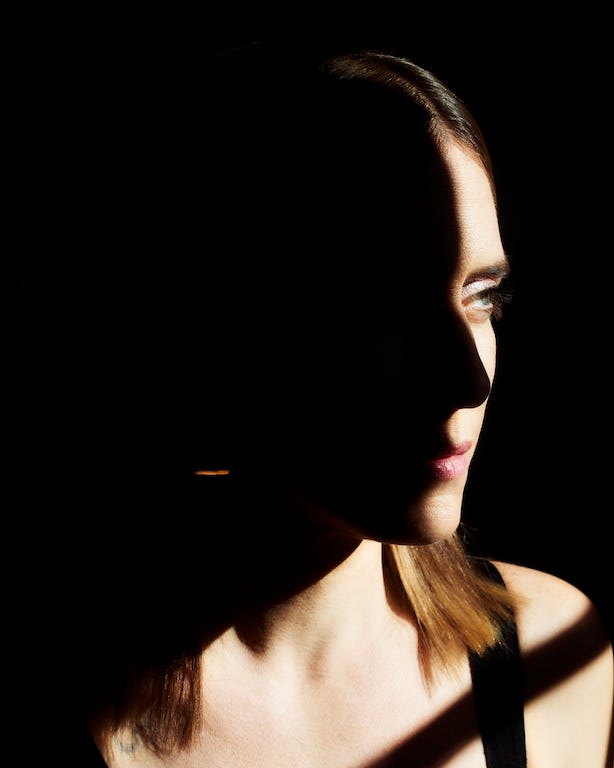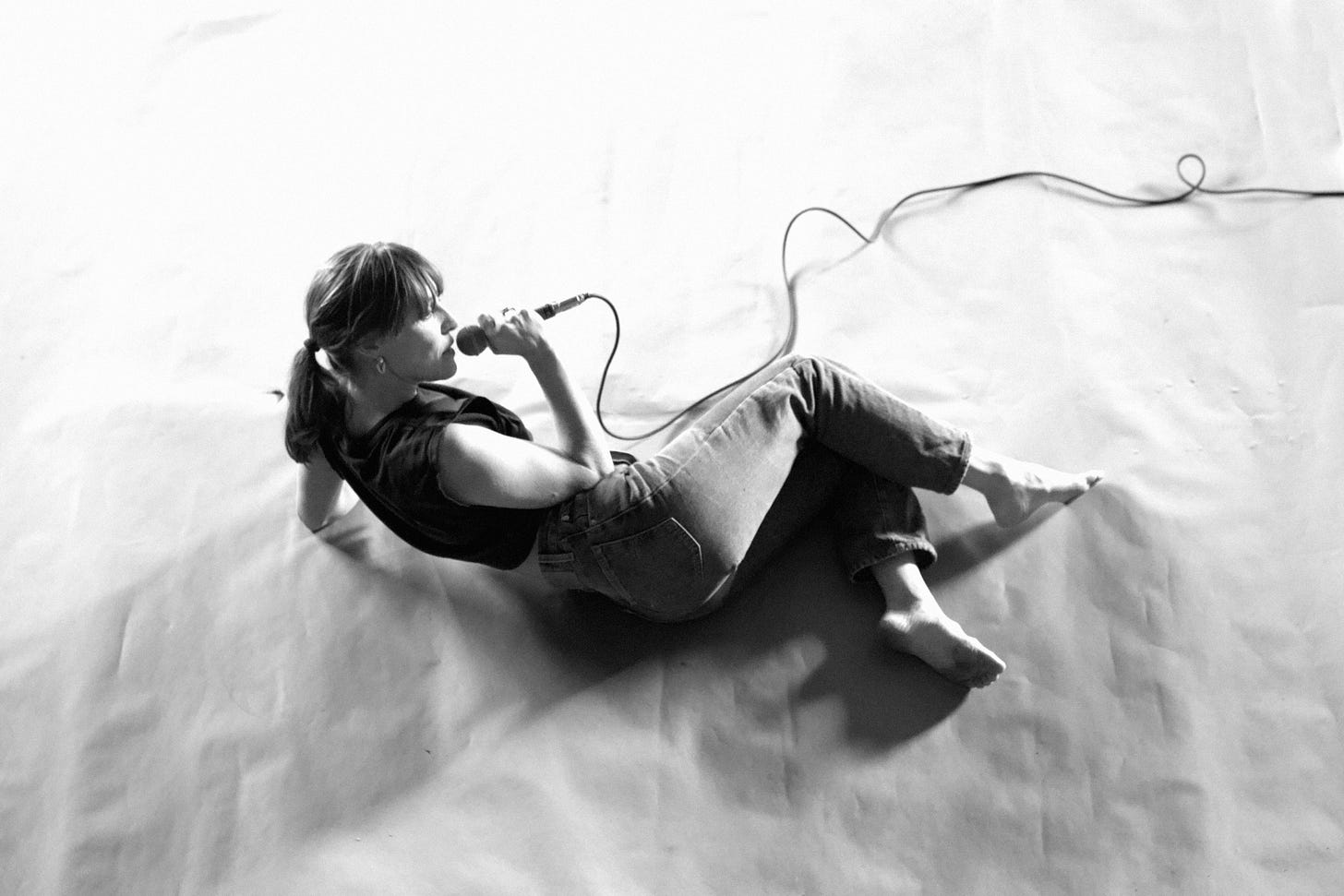Morning,
It’s Monday, yes, but it’s a short week. So let’s power on through until we can all loosen our ties and rejoice in Maundy Thursday, the fifth day of the Holy Week but the second biggest night of the year for ravers. See you on the dance floor.
To help you re-enter the working week we have Chris Catchpole’s hard-hitting yet good-natured interview with Canadian singer-songwriting superstar Feist below. I would like to also remind you that we are hosting the launch of Edgar Jones’ masterpiece Reflections of a Soul Dimension LP at The Social on May 3. This is the only London show he’s doing with his band so it will be unmissable for all London-based young (and old) soul rebels. Tickets are here.
He dropped a new track, Place My Bets On You, from it over the weekend. It’s so good.
Anyway, there’ll be no edition on Friday nor next Monday due to the bank holiday, but we’ll see you the following Friday.
I want to take this opportunity to thank all of our paying subscribers. Times are tough, we know that, so the investment is not possible for everyone - but for those who donate a fiver every month to us we are very grateful. We could not deliver these newsletters without that because, although our labour looks effortless, it is actually our full-time part-time jobs. So, thank you. Everyone gets one edition a week. Paying subscribers get two.
Enjoy today’s,
Ted, Niall and Chris
Start The Week With… Feist
Canadian singer Leslie Feist first came to prominence as a member of alt-rock collective Broken Social Scene, before breaking big with her 2007 album, The Reminder, and in particular its worldwide iPod advert-boosted hit 1234. Her sixth album, Multitudes, in out 14 April and is her first in almost six years. Its songs originated from a place of quite significant personal upheaval for Feist - she adopted a daughter, then the following year her father died - and were then developed and ‘workshopped’ during a series of immersive live shows last year. Chris spoke to Feist on Zoom a few weeks ago about how the album came together, how the songs were transformed by the shows, and the question everyone wants to know the answer to… what it’s like to appear on Sesame Street.
Hi.
Hi Chris, are you the journalist or are you with the label?
I’m the journalist.
Sorry, sometimes I don’t know who I’m talking to until they tell me. It’s late for you, right?
It’s 8:20 pm here so it’s not quite my bedtime yet. It’s been six years since your last album, does it feel weird doing interviews and talking about these new songs after so long away?
Yeah, I’m now watching myself feel embarrassed and uncomfortable. I think, ‘Who wants to know my feelings about all my personal life experience?’ Songs are their own emotional messages in a bottle, so it does make sense I guess. I’m grateful that anyone wants to talk about them.
Does talking about the record put a fresh perspective on it for you?
It’s the only time I stop and pause and really consider the totality of the way the songs all fit together. I certainly learn something when people have their own perception of the record. I’m like, ‘Oh, I didn’t even consider that...’ It was locked up in a little digital treasure chest inside my computer for so long. It was hermetically sealed inside, I was working on it and it was still a malleable thing until just a few weeks ago, so that’s been quite surprising. I’ve snapped my fingers and it’s out of my reach now.
I suppose that’s the nice thing about songwriting, that you can write a song about one thing and send it off into the world and it can mean something completely different to somebody else.
Yeah, and I think that over the years I’ve had more of an awareness that that is something that can occur. No matter what I intended, people will interpret it through their own life experience and through their own lens. Even for myself, I can sing a song that I wrote 20 years ago and sometimes I get this sort of funhouse mirror thing where I’m like, ‘Whoa, that’s not what I thought it was!’ When the songs are open enough containers, even I can read them as an entirely different thing. It’s like if you read Kurt Vonnegut when you’re a teenager then you read it when you’re older and it’s a completely different book.
It does feel very intimate and personal, but at the same time quite non-specific so you can put your own experiences into the songs.
That’s the best compliment I could ever receive as a songwriter. That’s my goal. The live show that we developed, that was the were the songs were workshopped.
Can you tell us a bit more about those shows and the idea behind them?
It started in that time when the world was shut down and we were wanting something different, stages with reduced capacity and all that. The idea of the show, the production itself, supported this idea that we had all just gone through something together more than ever before. The show was built to allow for the fact that everyone had just been through some kind of crucible transformation. Everything was called into question. I don’t know anyone who just bumbled along. I remembered having the thought in that first week that a man I’d met in Cairo at the market, he’s experiencing this right now. That a lady I’d stayed with once in Cuba at her house, she and her daughter were experiencing this right now. Of course, we are all experiencing the human condition all the time - we all wake up and go to sleep and brush our teeth or whatever - but there was this extra feeling that we were all encountering something so radical together. And the show was built for that, and the songs were built by that experience, too.
How would you describe the shows themselves?
A friend of mine after seeing it said it was like some kind of egalitarian socialist theatre experiment. Normally there’s a spotlight and this rarefied air of extra authority given to the singer, which I think serves people. People like that feeling, of having these declarations made from a brightly-lit podium. Through human history there’s been storytelling by the fire, the pyramid with the priest on top, or whatever version of a lot of people looking at one person it is. It’s weird that it’s now entertainment, but I’ve never comfortably fitted in that spotlight, or felt that I could shapeshift into that. I think there’s just something innately Canadian about me. Like the hubris of that, I aspire to a little bit of that, but then I’ll be like, ‘Aww shucks, sorry…’
So, this show served the idea that everybody had been through something, and we were all on the same plane. There was no stage, the lighting was such that everybody was equally lit including myself and it was all in the round so everyone was encountering each other, they were looking at each other as much as, and the live feed camera was traveling through the audience. The camera would come behind people and you’d see people holding hands, and they’d focus on the hands or their feet and their bags and it would be such a massive image all around us. It was the reinforcement of these very tender, very close-up individual details of people. Then there was quite a big dramatical arc to the whole thing where we kept changing the context and the context of the expectations. We kind of underwhelmed everyone and then pulled the little rabbit out of our hat. It was in [fancy ‘3D’ surround sound effect] Atmos Surround Sound, but we didn’t reveal that until the bass drop, then it became this real cinematic experience.
How did that impact on how the songs came together and how they turned out on the album?
I was writing the songs to the idea that the vocals could move. I was a bit suspicious of this Atmos thing. It sounded like technology for technology’s sake. I’ve always been a bit of a Luddite, but our producer said, ‘No, it doesn’t need to be intimidating. You’ve always been making stacks of harmonies live’ I use a looper a lot and I have for 20 years – and he was like, ‘It’s what you already do but we’re gonna lift it into a fidelity that the pedal can’t do. So just do what you always do, but just knowing that we can lift those vocals, we can separate them out from one another, they can move, they can go from one voice to 1000 voices, whatever you want. Just know that there’s this tool at your disposal.’ The song Hiding Out In The Open, I wrote that in the round, because I thought we could make it like a campfire. And Become The Earth where it feels like a normal song and then it all the oxygen get sucks out of it. Blake Mills who engineered the record, he and his engineer had seen the show and he gave it a new interpretation of the physical experience.
Prior to the shows, you started writing these songs after two fairly seismic events in your life. You became a mother and your father passed away…
In terms of motivation for these songs, a dimension in me opened so deeply that actually I didn’t care about songs anymore. I cared about how to survive. I don’t mean how to survive my daughter, but as a friend said to me, there’s an incineration in becoming a mother. You’re incinerated but the person that rises from among the ashes is amore interesting person to be for the rest of your life. It’s sort of a trade-off, you’re willing to lose everything to gain something more. So I was already writing from a very crucible state. I was liquefied. I was unfamiliar to myself and I went into songwriting the way I suppose some people bake themselves through difficulty or they go hiking. Anything that you have to return to when you don’t know what else to do when the hours have exponentially grown. Grief does a funny thing to time where there are more minutes in the day and there’s more seconds in the minutes and everything feels endless in this weird expanded now of that acute pain. So I returned to songwriting really in a kind of medicine sense. It wasn’t for any exterior reason, it was really because it was this thing that was familiar enough to me. Maybe because my former self had kind of disappeared inside the the new responsibility of being a parent that I returned to it also as kind of a I remember of who I am. Art was in service of life.
Did it help you make sense of your grief?
There’s got to be a nicer way to say it, but misery loves company or something. I know that for myself, I’ve gone to music when I don’t know what else to do with my brain or with my feelings. Certain songs have seen me through or maybe just kept me company in an expanded now that was otherwise a bit like the dark night of the soul. It only does good. I don’t think that music has ever made me feel less like myself. It’s kind of magical. Aren’t we fortunate that it exists? I say that as someone who has gone to different songs to help me make sense of my life. I remember the first time I heard Lucinda Williams’ Fruits Of My Labor. I couldn’t have been more grateful for somebody to have written that. I could feel that she was writing from experience. It made me believe that my pain could end because hers must have ended enough to write a song about it. There’s lots of songs like that have seen me through dark times so I feel grateful if these songs can serve a similar purpose.
As we’re running a bit late I’ve only got time for one last question… I once read that you said the highlight of your career was singing 1234 on Sesame Street. Does that still stand?
Well, it was a good one, but luckily I have had some other peak moments since then. It was a real pleasure, though. The seven-year-old in me couldn’t believe that I was there. It’s funny because my daughter just saw it. In the last couple of weeks, she walked into the room holding four bananas and then counted to seven. She kept skipping numbers, she was like, 12789… I was like, no, honey it’s 123… Oh, actually, wait, I have something I can show you!
There you go! It’s still coming in useful all these years later. Thank you so much for talking to us.
Thank you, take care. Bye!
CC






